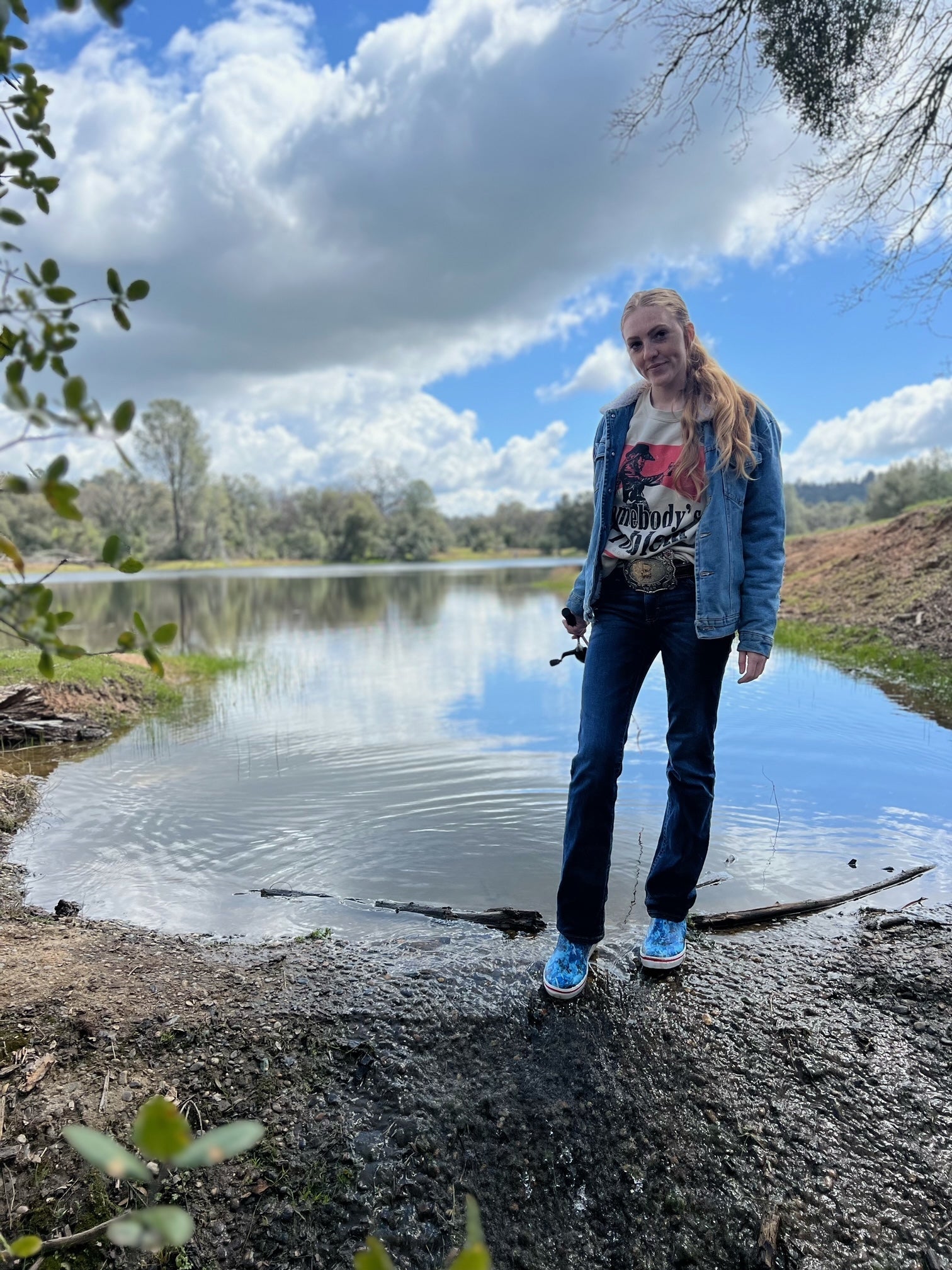This article is edited by Trudave. With years of expertise in waterproof apparel and footwear, Trudave aims to provide impartial and professional advice on selecting hunting gear for different seasons. Please note that this article does not feature Trudave products, but if you find it helpful, we would appreciate your support! Visit our official website: https://trudave.com.
While humans still debate regional accents, fish in American waterways have mastered a survival "code" that transcends ecosystems. Acoustic studies in the Hudson River (2023) show urban striped bass evade boat engines 2.3 times faster than their Appalachian mountain stream counterparts, while fish near Indiana's industrial corridors can detect heavy metals at 0.1 ppm – like finding one contaminated grain in a 50-pound sack of rice.
This isn’t random evolution: The growl of Detroit freighter traffic has become aquatic "sound terrorism," forcing Great Lakes perch to retune their threat radar to frequencies above 2,000 Hz. Meanwhile, Mississippi River catfish near chemical plants now smell trouble faster than EPA sensors, their olfactory genes mutated to track toxins most labs can’t even quantify. As survival threats shift from bass lures to billion-ton barges, America’s fish are rewriting evolutionary rules – an underwater arms race fueled by human-made chaos.

Section Title: City Fish vs. Mountain Fish: The Great American Sound Showdown
Picture this: In the murky waters of New York's Hudson River, striped bass are playing a real-life game of "escape the boom." When cargo ship engines blast low-frequency rumbles (50-2000Hz), these street-smart fish dart to cover in 0.5 seconds – 230% faster than their Appalachian mountain stream cousins.
The Sound Test: Scientists hit two fish groups with noise tracks: diesel engine "death metal" vs heron hunting "nature documentary OST." Urban fish reacted to high-frequency sounds (2000Hz+) like teens to TikTok alerts, while mountain fish still processed threats at bass-heavy speeds.
By the Numbers:
🚨 Escape speed: City fish 0.5 sec vs Mountain fish 1.65 sec (enough time to sip your latte)
🎯 High-frequency reliance: 87% of urban fish decisions hinge on 2000-3500Hz range – they’re basically underwater audiophiles
Section Title: Toxic Super-Sniffers: When Fish Outsmell EPA Labs
In Ohio's Cuyahoga River – famous for catching fire in 1969 – bluegill fish now play real-life "Survivor." Heavy metal pollution forced them to evolve TRPA1 smell receptors 85% stronger than normal, detecting mercury at 0.1 ppm (like finding 5 salt grains in your bathtub).
The Fish Cheat Code: Scientists tested clean-water and polluted fish with lead-laced bait. Polluted fish bolted like kids fleeing broccoli, while their pristine cousins bit eagerly. But this superpower costs them: these "metal detectives" burn 15% more energy daily and have lower sex drives than monkfish.
Evolution's Trade-Off:
🔍 X-ray noses: Sensitivity matching 1/3 of human lab equipment
⚡ Energy tax: Like humans jogging 2 extra miles on kale salads
🍼 Baby bust: 23% fewer eggs – piscine birth strike

Sound Wars: How Stealth Lures Hack Fish Survival Code
Imagine catfish in the Mississippi River sending 2000-3500Hz danger alerts – their version of emergency texts. But barge noise (800-1200Hz) acts like a never-ending rock concert, drowning out the piscine SOS. Scientists' spectrogram comparisons reveal this clash is like masking hummingbird love songs with Harley exhaust roars.
Angler Hacks: Field tests across 10 Texas lakes show stealth-coated lures boost bass catches by 22%. These ninja gadgets slash metal vibration noise from jackhammer-level (120dB) to whisper-quiet (80dB) – think library versus construction site. Bonus: They work better in murky water, proving fish can't resist a quiet predator.
By the Numbers:
🔊 Frequency fight: Ship noise blankets 87% of fish alarm bands
🎣 Silent killers: Noise-canceling lures score 35% higher in polluted waters

Think of Detroit River bass as gym rats overdosing on protein shakes – their super-hearing helps dodge ships 230% faster, but their populations crashed 40% since 2010. Scientists call this "sensory burnout": these fish spend 30% of their energy on auditory nerves, leaving immune systems as weak as a Wi-Fi signal in a concrete bunker.
Fix the Future:
Ship Silence Laws: Make freighters install "aquatic mufflers" to drop 800-1200Hz noise from rock concert (110dB) to coffee shop (70dB) levels
Smart Sound Buoys: Deploy devices emitting 3500Hz clean frequencies in polluted estuaries – like giving fish AirPods for danger alerts
Wake-Up Call: If we ignore the sound war, 92% of Great Lakes fish communication bands could be hijacked by human noise by 2050, turning waters into acoustic dead zones.

Happy hunting!
If you'd like to learn more about hunting gear, outdoor activity safety, or related information, you can visit the following authoritative websites:
- National Rifle Association (NRA): https://www.nra.org/
- Outdoor Industry Association: https://outdoorindustry.org/
- Bureau of Land Management (BLM): https://www.blm.gov/
- Wildlife Conservation Society: https://www.wcs.org/
Additionally, if you're looking for high-quality waterproof gear, be sure to check out Trudave’s official website to explore our curated selection of products designed to keep you dry and comfortable during any outdoor adventure.
Thank you for reading and supporting us. We hope you have an extraordinary experience on every outdoor adventure you embark on!








